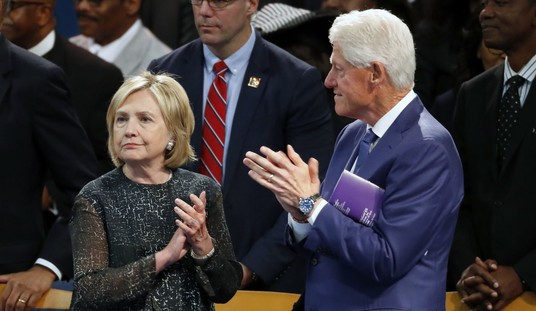Senators Tom Coburn (R-OK) and Ben Cardin (D-MD) are out to get rid of the ethanol subsidy. The subsidy was put into the tax code to make it much harder to get rid of. How much harder?
Well, according to Grover Norquist, if we get rid of the ethanol subsidy, we are raising taxes.
I’ve written before how Grover Norquist gets lots of money from groups that lobby for special tax treatment and then, when Congress attempts to get rid of the special tax treatment that money has bought, Norquist screams about it being a tax increase.
It’d be quite a little racket he has going except that Americans for Tax Reform says there is no relation between the money they get and the “you’re raising taxes” hoo-hah they raise. It’s just businesses supporting a like-minded ally.
Notwithstanding that, many businesses in America hire lobbyists to complicate the tax code to benefit themselves in ways you and I are not so advantaged and then raise hell when conservatives try to level the playing field. Some of those same businesses then give Americans for Tax Reform money and ATR engages in keeping the tax code ridiculously complicated with screams of “tax increases” that are no such thing.
In fact, you and I forcibly having to give money to corn growers to make inefficient ethanol, which then directly corresponds to higher food prices, gas prices, and gas inefficiency is a tax increase that elimination of the subsidy will get rid of.
Tom Coburn, Ben Cardin, Charles Koch (yes, *that* Charles Koch), and others, want to end the ethanol subsidy. Grover Norquist who is as wrong on ethanol as he is on FedEx v. UPS and matters relating to Jihad, declares it to be a tax increase to get rid of the ethanol subsidy.
In a letter to Norquist, Coburn defends ending the subsidy. He points out:
Unfortunately, this is not the first time your organization has defended distortions in the tax code. In 2009, you defended a $246 million tax earmark for Hollywood movie producers. You opposed my amendment on the grounds that it was a “tax increase.” Fortunately, dozens of Republicans who signed your pledge exercised good judgment and common sense and voted to help pass my amendment.
Now, your organization is working to protect an ethanol subsidy the Heritage Foundation and others have called a tax earmark because it is a special interest giveaway targeted to a narrow group of recipients. The Council for Citizens Against Government Waste also supports my amendment and will consider any votes on the matter in their 2011 Congressional Ratings. As CCAGW President Tom Schatz wrote in support of my amendment, “At a time when the nation’s debt has ballooned to more than $14.2 trillion, members of Congress should be looking for every viable way to cut wasteful, unnecessary and duplicative spending.”
Industry leaders like Charles Koch of Koch Industries also oppose ethanol subsidies. Mr. Koch recently wrote in the Wall Street Journal: “[B]ecause of government mandates, our refining business is essentially obligated to be in the ethanol business. We believe that ethanol – and every other product in the marketplace – should be required to compete on its own merits, without mandates, subsidies or protective tariffs. Such policies only increase the prices of those products, taxes and the cost of many other goods and services.”
Likewise, in a recent op-ed on the subject, Coburn gets to the heart of the matter:
First, the ethanol subsidy is a spending program, not a tax relief measure. If it were solely in the discretionary budget and controlled by the appropriators it would be unmasked as a rank cash payment. Instead, Congress has shifted the spending program to the tax code to protect it from being cut.
Two, this cash payment is nothing more than corporate welfare not-so-cleverly disguised as a tax break that, in the real world, has the impact of a tax increase.
As Pete Sepp with the National Taxpayers Union says, “the refundable VEETC is a prime example of tax policy at its worst. Congress needs to focus on simplifying the tax law and cutting rates for everyone, rather than manipulating the tax law and distorting our economy.”
Coburn also points out that the ethanol subsidy directly relates to higher food prices:
Regarding food prices, CBO said, “The increased use of ethanol accounted for about 10 percent to 15 percent of the rise in food prices between April 2007 and April 2008. In turn, that increase will boost federal spending for the Supplemental Nutrition Assistance Program (SNAP, formerly known as the Food Stamp program) and child nutrition programs by an estimated $600 million to $900 million in FY 2009.”
Oh, and the ethanol subsidy also contributes to damaging your car engine and decreases your fuel efficiency.
Some will say we must get rid of the ethanol subsidy and the ethanol mandate at the same time. Let’s put them both on the table. For now, only the subsidy is on the table.
The reality is that once the subsidy is gone, the mandate will quickly disappear.
In the meantime, conservatives should stand with Coburn and Koch, not Norquist and the corn growers lobby.














Join the conversation as a VIP Member